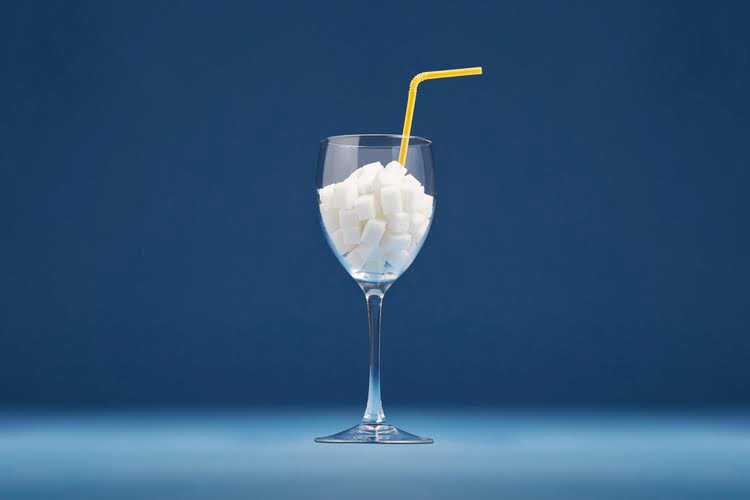If there is misleading data in questionnaires or during medical interviews, their overall subsequent analysis is also distorted. The relatively low number of cluster-headache studies also does not allow an assessment of any correlation with alcohol drinking. Moreover, some alcohol and headaches of the studies included in our review do not present results in an accurate way or do so without assigning patients to specific headaches. Therefore, it was not possible for our meta-analysis to contain all those studies where drinking was described with primary headache.

However, further studies related to primary headaches and alcohol consumption with low risk of bias are required. Additionally, patients and physicians should consider the latest medical data, in order to avoid the myths about alcohol consumption and primary headaches. Because there is such a wide spectrum of disease severity with migraine, there’s also a wide spectrum of management plans. Some people need what we call an acute or a rescue treatment for infrequent migraine attacks. Whereas other people need both an acute and a preventive treatment plan.
Delayed Alcohol-Induced Headaches
Early effects of alcohol can dull sensations and have an analgesic effect, but as alcohol leaves the body it can have the opposite effect and actually increase sensitivity to pain. Some studies have reported that alcohol can trigger a migraine headache in people who are sensitive to it in as little as 30 minutes — or it could take 3 hours. Migraine causes a specific type of headache that involves neurological symptoms such as light sensitivity and aura. Other types of headaches, including severe headaches, can occur as a result of alcohol consumption. Chemicals called congeners are also a component of alcoholic drinks. These chemicals may also trigger migraine headaches in certain people.
The duration of a detox headache post alcohol will usually last a maximum 72 hours and minimum 12 as the alcohol is leaving the body and hydration levels begin to rise. The intensity should also begin to taper off and within these time frames the pain experienced will gradually reduce. Migraine episodes can be a periodic inconvenience, or they can be debilitating. The most severe migraine attacks may last up to 3 days and make it impossible to do anything.
Alcohol and Headaches: Why They Happen and What You Can Do
There is only one sure way if treating an alcohol-related headache. However, in case this is not an option, there are a few treatments available for treating this condition. Moderate alcohol use for healthy adults means up to one drink a day for women of all ages and men older than age 65, and up to two drinks a day for men age 65 and younger. Congeners are more likely to produce a hangover or increase the severity of a hangover. But drinking too much alcohol of any color can still make you feel bad the next morning.
- You could get a headache within 30 minutes to 3 hours of drinking.
- If you are struggling with alcohol abuse or other dependency issues, there are many resources that are ready to help.
- Though migraine causes aren’t fully understood, genetics and environmental factors appear to play a role.
- Prolonged withdrawal, also known as protracted withdrawal syndrome, is acute withdrawal that lasts for up to a year, instead of a short-term two-week withdrawal timeline.
- If you are struggling with alcohol dependence and would like to quit drinking, you can begin by slowly tapering off the amount you take.
Alcohol-related brain damage (ARBD) disorders could occur due to frequent alcohol consumption. Those who drink alcoholic beverages may be unable to stand upright and are more prone to fall and hit their head, which may lead to brain damage. There are a variety of compounds in alcohol that can cause post-alcohol related headaches.
Take our Migraine Journey.
The American Migraine Foundation Resource Library provides a wealth of articles designed to assist you in understanding your symptoms and treatment options. It may be worth considering some treatment options to help you manage your symptoms. It will be crucial to have access to reliable resources on migraine as you work to manage this disease. The American Migraine Foundation offers extensive resources to help you explore your symptoms and treatment options. You should not have to deal with migraine—or pregnancy—alone.

Alcohol-related headaches will usually last hours and the sufferer can take action to decrease the length of time they are present. However, there is no definite time frame for those enduring a headache post alcohol. People who cannot stop drinking should talk with a doctor about treatment for alcohol use disorder, which is a serious but treatable condition. A 2015 study suggests that the inactivity of alcohol dehydrogenase 2, an enzyme that helps break down alcohol, might contribute to hangover headaches. However, the study author also cautions that no single factor causes all hangover headaches.
Males should aim to drink two or fewer drinks daily, and females should aim to drink one or fewer. The alcohol in the blood increases more quickly with liquor than with beer. For example, if a person drinks liquor before beer, they are likely to feel the effects https://ecosoberhouse.com/ of the alcohol sooner. 2020 research shows that females are more likely to experience hangovers, memory problems, and liver disease from consuming alcohol. Many with migraine, and most with cluster headache, are sensitive to alcohol, even in small amounts.
Sunny Deol recalls drinking alcohol for the first time to fit in English society – Hindustan Times
Sunny Deol recalls drinking alcohol for the first time to fit in English society.
Posted: Sun, 15 Oct 2023 04:54:00 GMT [source]
Still, in population-based studies in various countries, including the U.S., Japan and Italy, researchers found that fewer people with migraine consume alcohol than those without migraine. This indicates that people with migraine and other headache diseases may be more likely to give up alcohol because they perceive it as a possible migraine trigger. Brandy, red wine, and rum have the highest levels of congeners, while gin and vodka contain fewer of these chemicals. However, a 2019 study found higher rates of vodka consumption among drinkers with frequent migraine attacks. The response to alcohol varies from person to person, and there is no alcohol that absolutely will not cause a migraine or other headache.

